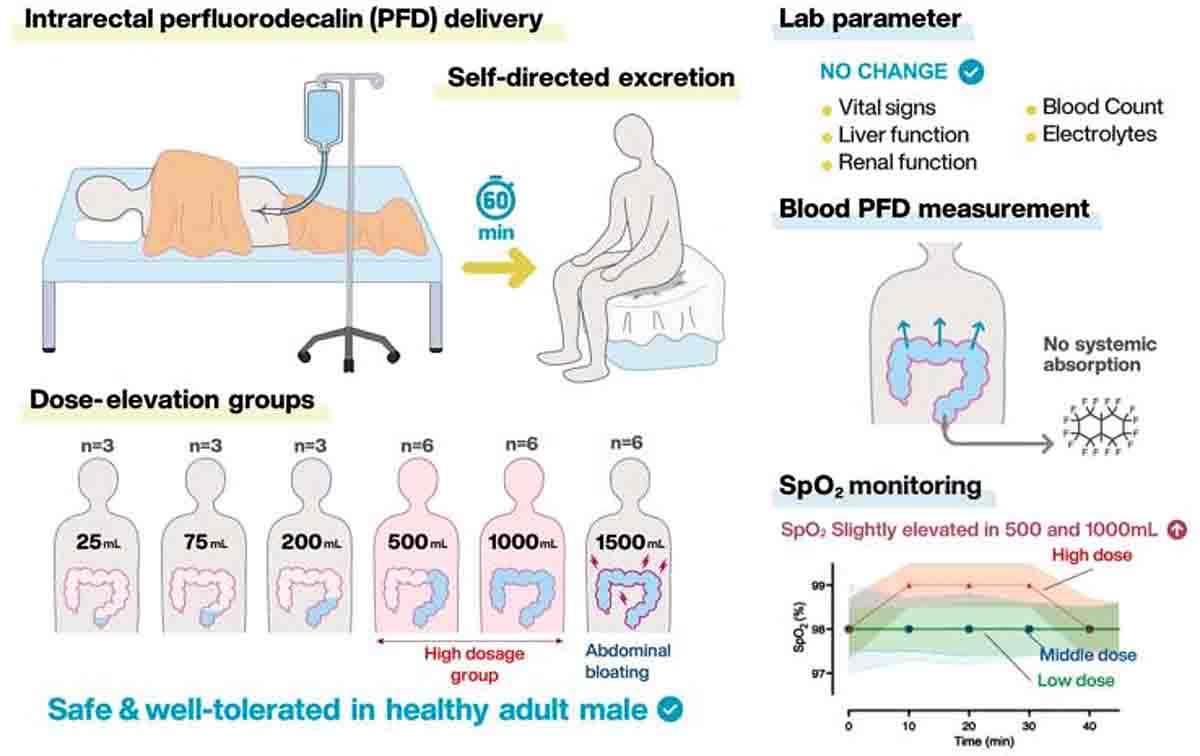Have you ever considered why we only breathe through our noses or mouths? Japanese scientists have proven that it's possible to absorb oxygen through the butt. While it might sound humorous, this is actually a serious medical breakthrough. A recent clinical trial demonstrated that this method is safe. If successful, it could serve as an alternative route for patients whose airways are blocked.
This technique, known as 'enteral ventilation', involves the introduction of a special liquid called perfluorocarbon into the rectum. This liquid is rich in oxygen. The concept is that the oxygen gets absorbed through the intestinal walls into the bloodstream, potentially eliminating the need for nasal or oral breathing.
This could be beneficial for patients with obstructed airways due to choking or injuries. It's not a new idea, as some animals like pigs, rats, turtles, and certain fish already utilize this method in emergency situations. Last year, this research won an Ig Nobel Prize in Physiology—a prize that honors both humorous and scientific achievements.

Source: aajtak
This was the first human trial, primarily focused on safety. The efficacy testing is yet to be carried out. In Japan, 27 healthy male volunteers participated. They received a fluid without oxygen (as a safety measure). Each volunteer held between 25 milliliters and 1500 milliliters of liquid in their rectum for 60 minutes.
The results were positive. No serious side effects occurred. Those who received the largest volume (1500 milliliters) experienced bloating, discomfort, and mild pain. Other vital signs like blood pressure and heart rate remained normal. Only 7 participants found it difficult to hold for the entire hour, but the rest managed well.
According to Takanori Takebe, a biomedical scientist at Osaka University, this is the first dataset from humans. The results currently only show safety, not efficacy, but as endurance has been proven, the next step is to test the delivery of oxygenated liquid into the bloodstream.
The upcoming trial will focus on oxygen-rich liquid. The goal will be to determine the right volume and duration needed to improve blood oxygen levels in patients genuinely needing oxygen.
Respiratory issues are significant worldwide, with the COVID-19 pandemic showcasing the need for ventilators. If this method proves effective, it could provide a backup option, especially in locations where traditional means are limited. However, this is still in its early stages, and further trials will require time. This research is published in the




